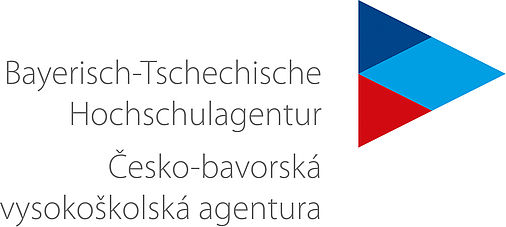Joint Czech-Bavarian Research Projects 2024 – 2026
Two projects led by researchers from the Faculty of Chemistry and Pharmacy at the University of Regensburg and their Czech partners have been selected for funding under the bilateral Bavarian-Czech funding program.
June 6, 2024
Bavaria and the Czech Republic are jointly funding research cooperation at eleven universities throughout Bavaria under the program Joint Czech-Bavarian Research Projects 2024 - 2026. In a competitive selection process, fifteen high-caliber projects, including two with researchers from the University of Regensburg, were selected to be implemented by Bavarian universities and universities of applied sciences in close cooperation with universities, universities of applied sciences, and scientific institutions in the Czech Republic. The projects selected from a total of 96 proposals will commence on July 1. The projects will be supported over a two-and-a-half-year period with up to €3.5 million in funding from Bavaria and a corresponding volume from the Czech Republic.
In one of the projects, Dr. Joshua-Philip Barham, Sofja Kovalevskaja Group Leader at the Institute of Organic Chemistry at the University of Regensburg, and Professor Dr. Tomáš Slanina, Academy of Sciences of the Czech Republic, are conducting research with sustainable goals. “The direct catalytic activation of non-activated alcohols for substitution reactions as chemical starting materials is an attractive target for chemists because the reactive organohalogenide derivatives (i) pose a major threat to human health and the aquatic environment, and (ii) are expensive”, explains Joshua Barham. In the past, non-catalytic activators have been used to activate alcohols, producing large quantities of persistent chemical waste products. The direct substitution of alcohols is one of the top 10 goals for sustainable innovation, according to experts in the global pharmaceutical industry. “In our project, new organocatalysts will be developed that enable the direct activation of alcohols from biomass to produce chemical products using water as an environmentally friendly ‘waste product’, the scientists state.
The second project by Professor Dr. Werner Kunz, Chair of Physical Chemistry at the University of Regensburg, and Ing. Martin Klajmon, Ph.D., University of Chemistry and Technology Prague, focuses on biopolymers. In the development of more sustainable and environmentally benign materials, the importance of biopolymers is expected to grow considerably due to their remarkable properties, which make them industrially useful for example as textile materials, or for hydrophobic coatings (to replace per- and polyfluoroalkyl substances (PFAS)), and as potential resources for non-petroleum-based platform chemicals. “Inspired by a selection of promising, but immature formerly derived results and based on the long-standing knowledge developed in the Bavarian group over decades, this project proposes investigations concerning the dissolution and stabilisation of different biopolymers in bio-based systems and trials to make new sustainable materials out of them”, the scientists note.

The Bavarian-Czech Cooperation Program is designed to facilitate networking and collaboration between early-career scientists and researchers from both countries. The program is administered by the Bavarian-Czech University Agency (BTHA) on behalf of the Bavarian Ministry of Science, and in the Czech Republic by the Czech Ministry of Education.
The research priorities of the program, which has been announced in the fall of 2023, align with the Hightech Agenda Bayern and encompass topics in information technology, artificial intelligence, materials science, nanotechnology, and cultural and social sciences.
Information/Contact
The Bavarian-Czech Academic Agency
Research Group of Professor Dr. Werner Kunz
Research Group of Dr. Joshua Barham




